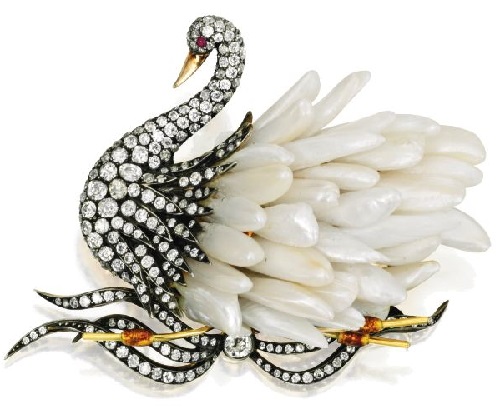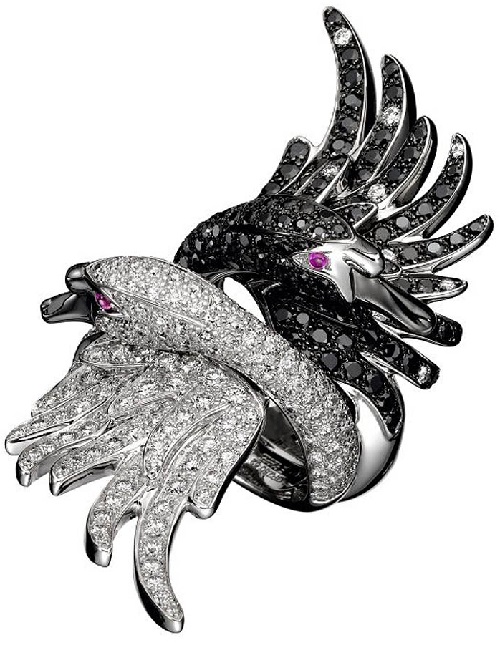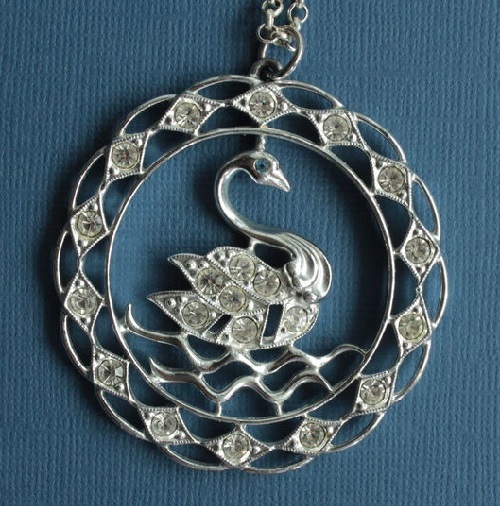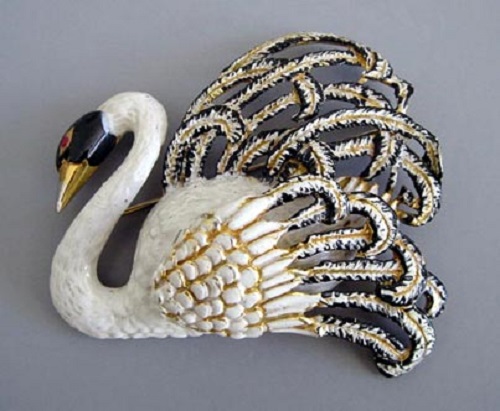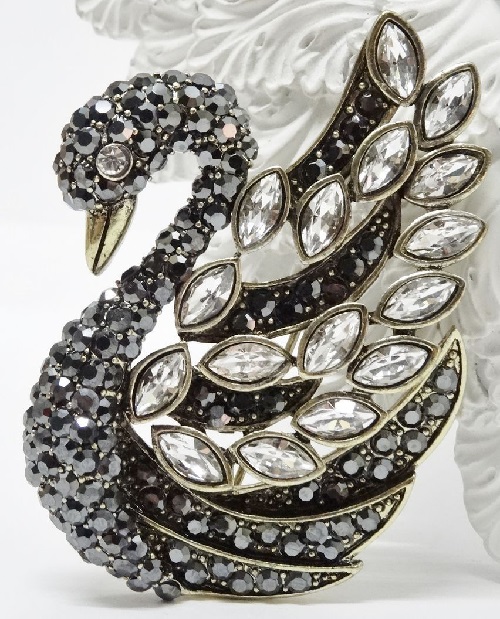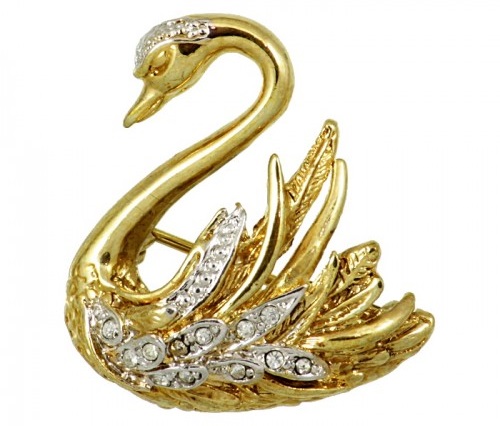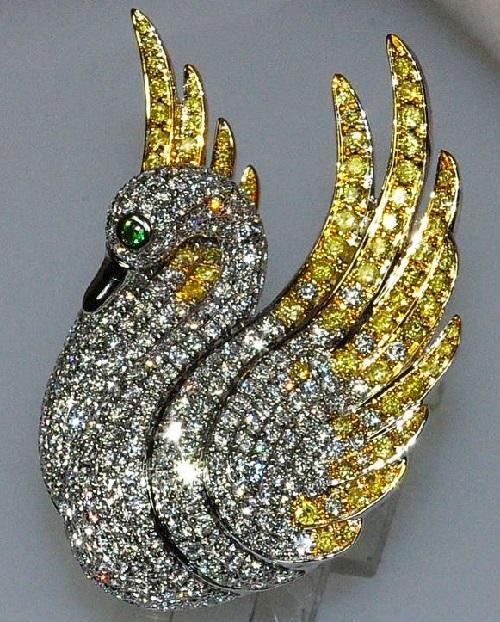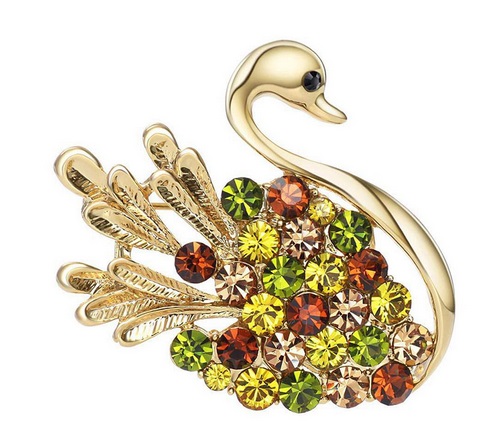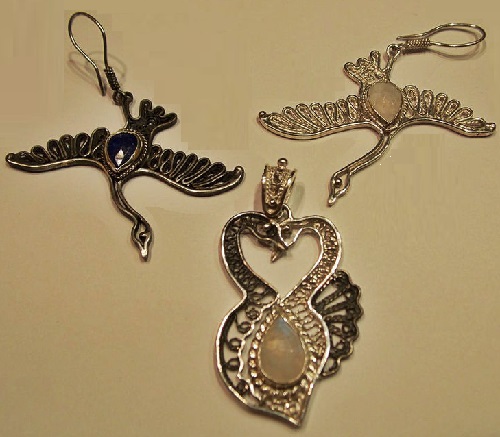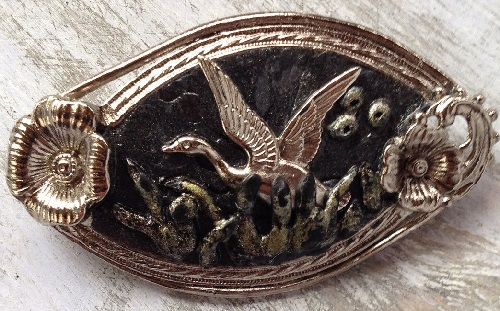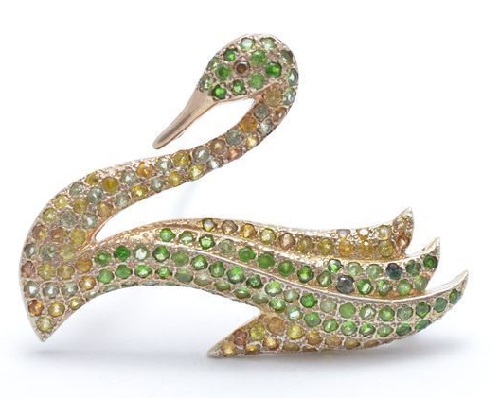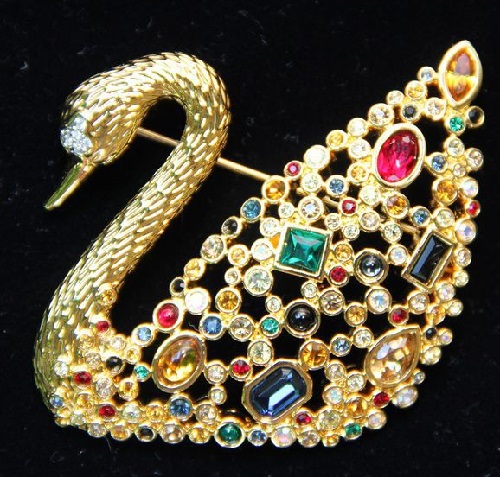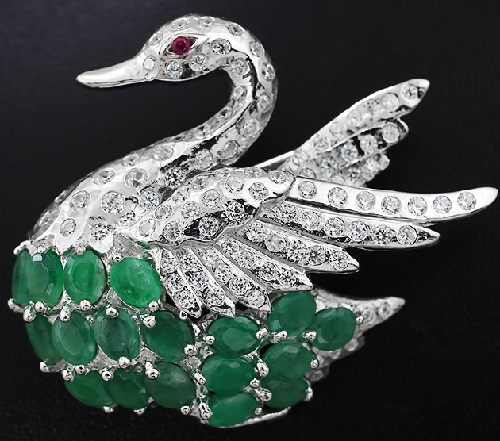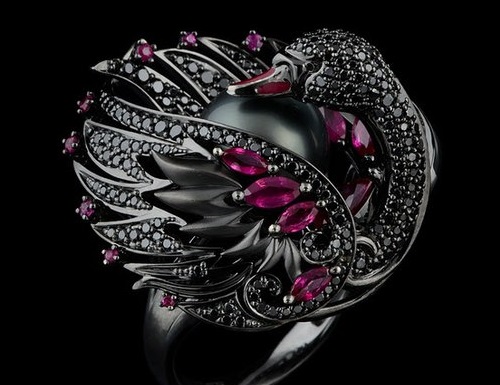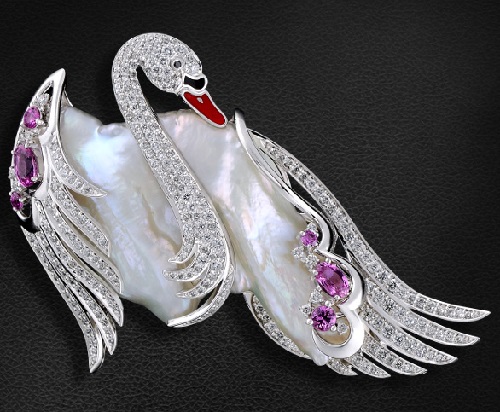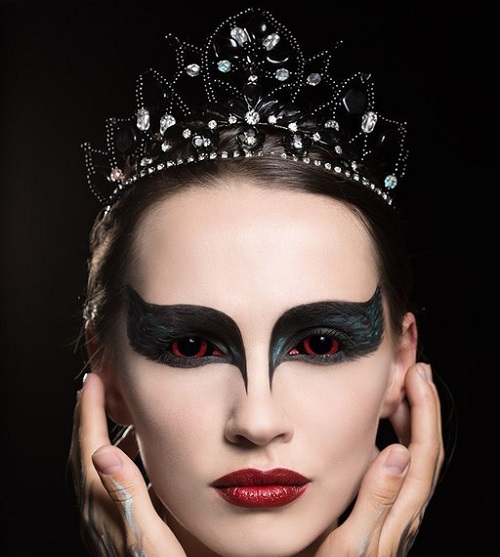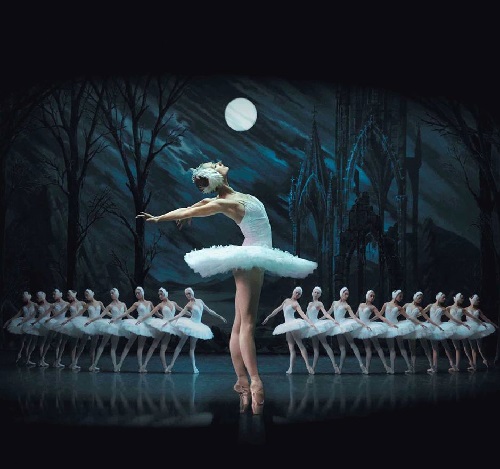Swan jewellery kaleidoscope
Swan jewellery kaleidoscope
According to Celtic folklore, swan is a transformed human, or even a bewitched nun. Noteworthy, to see seven swans flying brings good luck, because seven years of good luck would follow. Also, seeing a multiple of seven brought that many more years of good luck. Hurting or killing a swan, conversely, brought bad luck to oneself and one’s entire community. Swan maiden is Celtic folkloric figure.
The story of a young woman who is half-bird appears throughout the ancient Celtic lands. Sometimes the girl was said to be under an enchantment, which might or might not be broken; other times, no reason was given for the maiden’s double nature. In the dark of night, such maidens took off their swan plumage and left it beside the lakes in which they swam, naked and beautiful. Should a man find the feather cloak of such a woman, he could make her his wife by stealing it, whereupon she became a happy and hardworking help-meet. Should the swan maiden ever find her feathers, she instantly converted herself to bird form and flew away, leaving her children behind without so much as a backward glance.
From Hans Christian Andersen’s “The Ugly Duckling”: One evening, just as the sun set amid radiant clouds, there came a large flock of beautiful birds out of the bushes. The duckling had never seen any like them before. They were swans, and they curved their graceful necks, while their soft plumage shown with dazzling whiteness. They uttered a singular cry, as they spread their glorious wings and flew away from those cold regions to warmer countries across the sea. As they mounted higher and higher in the air, the ugly little duckling felt quite a strange sensation as he watched them. He knew not the names of these birds, nor where they had flown, but he felt towards them as he had never felt for any other bird in the world.
He was not envious of these beautiful creatures, but wished to be as lovely as they. Poor ugly creature, how gladly he would have lived even with the ducks had they only given him encouragement.
“I will fly to those royal birds,” he exclaimed, “and they will kill me, because I am so ugly, and dare to approach them; but it does not matter: better be killed by them than pecked by the ducks, beaten by the hens, pushed about by the maiden who feeds the poultry, or starved with hunger in the winter.”
But what did he see in the clear stream below? His own image; no longer a dark, gray bird, ugly and disagreeable to look at, but a graceful and beautiful swan. To be born in a duck’s nest, in a farmyard, is of no consequence to a bird, if it is hatched from a swan’s egg. He now felt glad at having suffered sorrow and trouble, because it enabled him to enjoy so much better all the pleasure and happiness around him; for the great swans swam round the new-comer, and stroked his neck with their beaks, as a welcome.
Then they threw more bread and cake into the water, and said, “The new one is the most beautiful of all; he is so young and pretty.” And the old swans bowed their heads before him.
